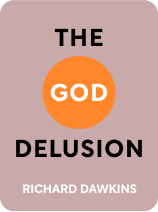

This article is an excerpt from the Shortform book guide to "The God Delusion" by Richard Dawkins. Shortform has the world's best summaries and analyses of books you should be reading.
Like this article? Sign up for a free trial here .
What is atheist morality? Can morality exist without religion?
Atheist morality is the idea that we don’t need God or religion to explain or dictate our morality. In fact, morality without religion is a natural part of the human experience and is more genuine and effective without religious guidelines.
Read more about atheist morality and how morality can exist without religion.
Atheist Morality: Without Religion
Clearly then, we don’t need God to explain our morality. In fact, the American philosopher and neuroscientist Sam Harris has noted that many of the behaviors we would traditionally associate with immorality, such as violent crime, are more prevalent in religious communities than secular ones. This helps explain why atheist morality makese more sense.
For example, of the 25 most dangerous cities in America (by violent crime), 76 percent are in “red” states, with large numbers of conservative Christian residents. Similarly, we see far higher rates of abortion and teen pregnancy in the “Bible Belt” region of the Southern United States than we do in the rest of the country.
Furthermore, evolutionary biologist Marc Hauser’s research shows that when atheists and religious people are presented with a series of hypothetical moral dilemmas, there is zero measurable difference between the moral intuition of the two groups.
Moreover, there is something problematic about the claim, often advanced by religious people, that they behave in moral and upstanding ways only because God compels them to. This is not morality; it’s just fear of punishment and ingratiation to a powerful higher being. By claiming religion as the sole basis for their moral behavior, people of faith are in effect saying that they would kill, rape, and steal if they didn’t live in fear of God’s punishment. In this way, atheist morality makes more sense and is truly moral.
The Categorical Imperative
One final moral claim advanced by the religious community is that religion provides absolute moral standards. Religion, they argue, is the only force capable of telling human beings what is good and what is evil in all cases.
Without the absolute and universal moral clarity of religion, they claim, each individual would be free to decide for themselves what is and is not moral. Anything could be justified under such a flimsy moral framework. But is this really true? But does religion truly have a monopoly on absolute moral standards?
The 18th-century German moral philosopher Immanuel Kant would have likely disagreed. He put forward a theory of atheist morality that could operate without God. Kant’s categorical imperative argues that individual moral principles should be judged on the basis of whether or not they would make sense as universal principles.
For example, if you cheat on a test because it’s inconvenient and burdensome for you to get good results by studying, would you then be in favor of a universal law that justifies cheating in all situations where working hard is inconvenient? Is a world in which people did this as a matter of routine a world in which you’d like to live? If your answer is no, then you must judge your own conduct as immoral under the categorical imperative.
Kant’s categorical imperative provides a moral standard that exists entirely outside of religion—it does not require the existence of God, nor the acceptance of a holy text. It demonstrates that morality can exist wholly without reference to religion, and that atheist morality exists for morality’s sake, not for God.

———End of Preview———
Like what you just read? Read the rest of the world's best book summary and analysis of Richard Dawkins's "The God Delusion" at Shortform .
Here's what you'll find in our full The God Delusion summary :
- Why Dawkins thinks religion has exerted a harmful influence on human society
- How Dawkins concludes that the existence of God is unlikely
- The 3 arguments that challenge the existence of God






